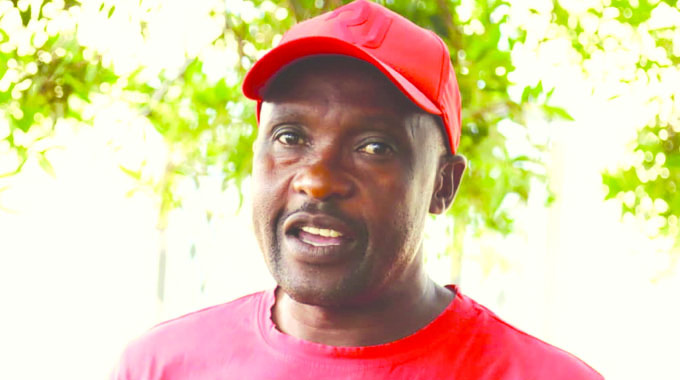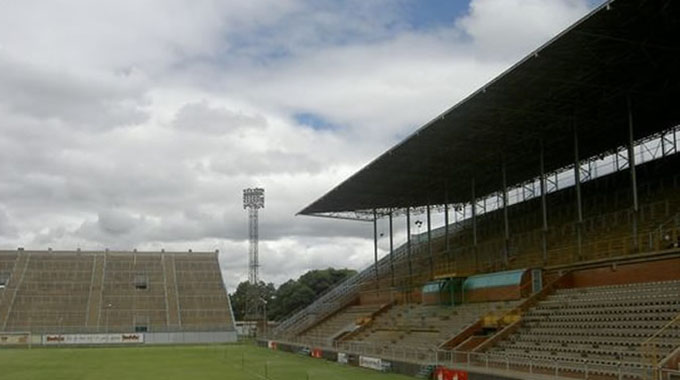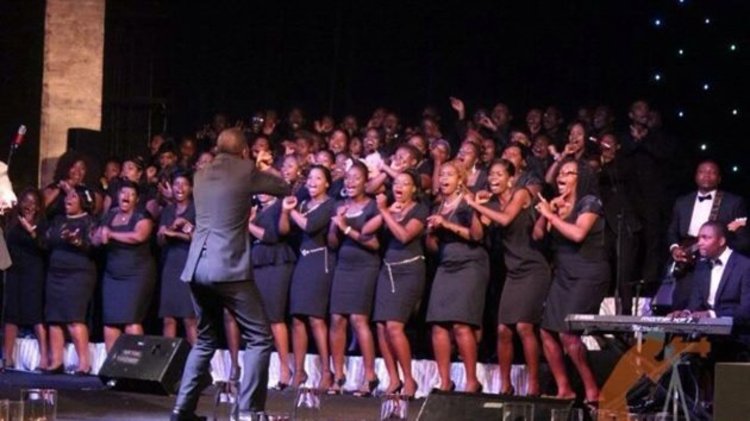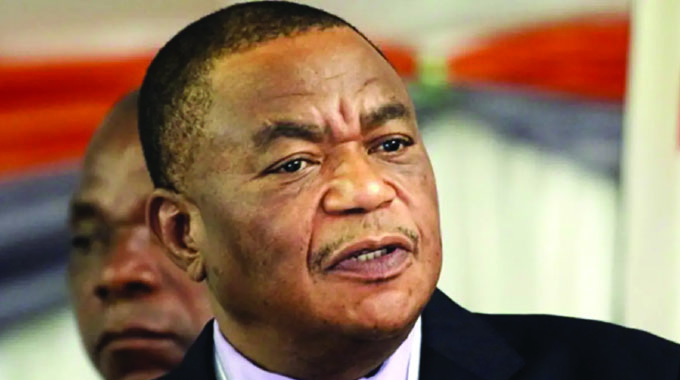How Albert Mbano missed an opportunity to play in France…

Tadious Manyepo Sports Reporter
BUSINESSMAN Mutumwa Mawere stares at his crumbling empire.
A presidential decree means he loses literally everything that he has been controlling.
He is specified under the Prevention of Corruption Act for “externalising foreign currency.”
Among his vast businesses is the Shabanie and Mashaba Mines.
Then he skips the border to South Africa.
The unfolding drama is tragic for one of the most iconic football teams in the country.
Shabanie Mine.
The team is owned by SMM.
And it’s even futile for their captain Albert Mbano. But, he never realises it until later on.
The Gokwe-born striker has just penned a two-year contract to stretch his stay at the Zvishavane club to the end of 2005.
He has refused to take cash as his sign-on fees. He has asked the team to buy him a house instead. Charmed with his display of maturity, the club asks him to comb for a property on sale. And he settles for House Number 3043 in Section 13 Mbizo, Kwekwe.
For Gokwe folks, owning property in Kwekwe is the ultimate achievement.
For more reasons than one.
Under the stewardship of Mawere, Shabanie Mine pays for the house and Mbano is scheduled to get the property and its title deeds on January 1, 2005.
However, the gods wouldn’t really smile on this poor boy from Bomba in Gokwe.
With Mawere gone, the Shabanie Mine board decides to adopt a chameleonic approach.
They shift the goalposts.
Much to Mbano’s disbelief.
“They (Shabanie Mine) told me the agreement was that the house belonged to the football club not to any individual,” said Mbano.
“I was so perplexed I couldn’t really understand what they were talking about.
“It was my idea to drop a cash offer as my sign-on fee and opt for a house. They asked me to look for the property to which I did.
“I did all the paperwork as an individual with members of the Shabanie Mine board only coming in as witnesses.
“I was surprised when they changed their stance at a time I was looking to move into the house.”
Inevitably, a legal wrangle ensued between the team and Mbano.
The matter is still to be resolved, exactly 17 years after the player hung up his playing boots. He is staying at Gokwe Centre where he acquired another house.
“When I look back at this issue, I am filled with regret. I think maybe I should have taken the money instead of going for the house.
“I can’t stop thinking about it…”
And this is not the only incident Mbano looks back at and shakes his head when reflecting on his event-filled career.
He could have grown to become one of the biggest footballers ever to emerge from this country.
At the age of 17, while enrolling for Form 3 at Hovano Secondary School, Mbano’s popularity had grown.
He could play any position in the field and he was like the player-coach given his game intelligence. At times, an army team, Gokwe Bullets would poach him during weekends to help them in their Second Division adventures. Word spread fast about his prowess and during a schools tournament, which featured Gokwe powerhouses Kana Mission and Gonyongo Secondary, some French scouts pitched up.
Mbano was unaware of the visitors.
The only clue, if any, was the presence of some posh and certainly strange cars for a place like Gokwe.
It wasn’t his business to care, after all.
The youngster was at his usual best.
He grabbed all the attention with his unmatched artistry.
“After the tournament, I was surprised to see some white guys approaching me together with my school teachers,” said Mbano.
“I was a bit jittery. They told my teachers that they had been impressed by what they had seen in me and they wanted me to join their academy in France.
“It was somewhat strange for me. In Gokwe, we used to play football for fun. We never believed that we could be good enough at professional level.
“We used to listen to football commentary on radio and the way everything was portrayed, I mean, the way the commentators were giving out the picture made us think we couldn’t match the standards.
“That’s why we never thought anyone from the village would grow to be like the players we heard on radio like Peter Ndlovu, Masimba Dinyero, Stanford “Stix” Mutizwa and the like.”
The year was 1989.
And Mbano’s teachers, themselves suspicious, referred the French scouts to the boy’s parents, mother Laiza and father Raymond (both late).
“I was not comfortable to be in the company of strangers. After all, I was playing football against my parents’ advice.
“I was praying hard for my parents to refuse the offer for the guys had said they would organise everything, including visas for me in a matter of one week because they really wanted me.”
Predictably, Mbano’s parents flatly refused the offer.
“I was happy that they refused to let me go. They were actually angry at me. Although they were offered some chance to say what they wanted in terms of my prize, they just said we want nothing, just leave our son alone.
“We lacked exposure in Gokwe and we took those genuine scouts to be people with bad intentions. We thought had I gone with them, I would be killed or get hurt.
“The guys even suggested they would go to the football authorities in the country to talk to us but my father warned them not to set their foot at our homestead again.”
An opportunity up in flames!
An opening chapter that probably would have seen a massive book of success being written in Mbano’s footballing career.
An incident Mbano always recalls with so much regret.
He would grow to learn that the French guys were indeed genuine scouts.
And probably the Mbizo house farce wouldn’t have been a part of his life which haunts him until this day.
“But such is life. The scouts from France somehow made me start believing in myself.
“I would join Kadoma United in Division Two where I played together with the likes of Arnold Jani, Silver Bhebhe and Givemore Ncube, among others.
“We played in the same league with teams like Lancashire Steel who got promoted the same year.”
After a promising season with Kadoma United, Mbano attracted Lancashire Steel’s interests and they promptly signed him.
But the lanky forward wouldn’t last for longer.
He fractured his right leg in the opening weeks of the season and he was sidelined for months in a plaster.
The comeback wasn’t rosy as well as he suffered another fracture.
This time on his left leg.
“That’s when I decided to look for opportunities somewhere else. I didn’t really understand what was happening. That was when I was convinced by Jairos Tapera to join his team ZESA Munyati (also in Division One) where he was coaching.
“I scored 29 goals after missing the first 13 games of the season,” said Mbano.
“Then another First Division side Kwekwe Stars came knocking. I agreed to pen a deal with them and scored 38 goals that season.
“I was so disappointed the goals wouldn’t help my team into Premiership promotion. It was Masvingo United who pipped us to the prize.” Lancashire Steel had been promoted a year earlier in 1997. And the Kwekwe team this time decided to sit Mbano down as they meant serious business in the top-flight.
It took friends and Tapera to convince Mbano that the injuries he had suffered in the earlier stint had nothing to do with superstitious beliefs.
“That’s how I ended up re-joining Lancashire Steel at the beginning of 1999.
“It’s our crop, that also had such players as Luke Petros, Willard “Mashinkila” Khumalo, George Magariro and Petros Sibanda, that won the Madison Trophy after beating Dynamos 2-1 in the final. I scored the opening goal.”
In 2001, Shabanie Mine presented a lucrative offer for the Gokwe-born striker.
In his first season in Zvishavane, he inspired the asbestos miners to BP Trophy honours after beating Dynamos 1-0 in the final with the late Thomas Makwasha scoring the solitary goal.
He would also inspire Shabanie Mine, whom he was now captaining, to the OK Grand Challenge Trophy in 2003 while also reaching the final of the Buddie Trophy.
He, just like in 1999, made it on the Soccer Stars of the Year calendar in 2003, in a year he was three goals short of the Golden Boot accolade which was won by Amazulu’s Norman Nkomani.
It was during the same period that he was earning Warriors caps with the goal he scored in his debut match against Malawi in a Cosafa tournament still the highest point of his career.
Then in a huff, following a stand-off with the Shabanie Mine chefs, Mbano left to join CAPS United before hanging up his boots midway through the 2006 season.
Now 48, Mbano is working in Gokwe and can’t rule out bouncing back into the game (with a different role) that gave him fame though he believes he could have earned a fortune had he agreed the offer from the French scouts.
It’s a feeling that will linger in his mind, for as long as he lives.









Comments